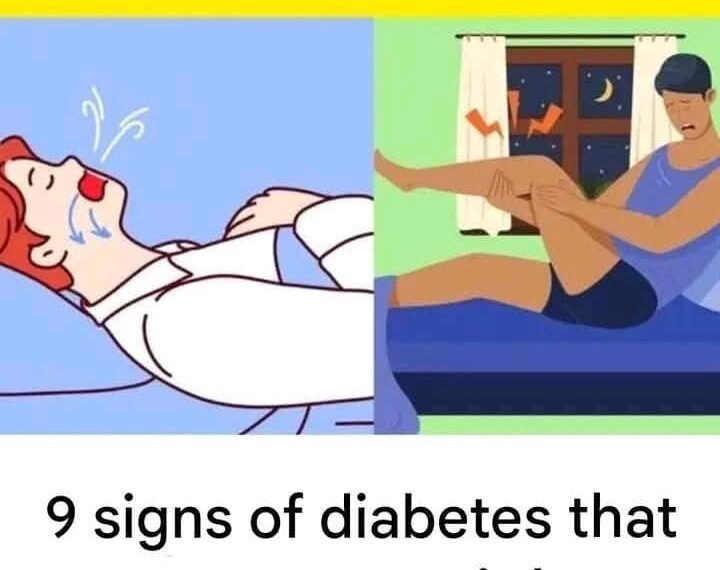Diabetes is a chronic condition that affects millions of people worldwide, and early detection is crucial for managing the disease and preventing complications. While many signs of diabetes are well known—such as increased thirst, fatigue, or blurred vision—some symptoms sneak up in the quiet of night, often going unnoticed.
Did you know that many warning signs of diabetes can show themselves during your sleep? These nocturnal symptoms may be subtle, but they silently disrupt your nights and can be important clues to underlying blood sugar imbalances. Recognizing these signs early on can help you seek medical advice promptly and improve your health outcomes.
In this post, we’ll dive deep into 9 signs of diabetes that appear at night, explaining what they mean, why they happen, and what you should do if you notice them.
1. Frequent Nighttime Urination (Nocturia)
Do you find yourself waking up multiple times during the night to urinate? It might seem like a common bathroom issue, but frequent urination at night can be a red flag for diabetes.
Why does this happen?
When blood sugar levels are high, the kidneys work overtime to filter and remove the excess glucose from your bloodstream. This causes your body to produce more urine than usual—a condition called polyuria. The extra urination pulls more fluids from your body, making you feel dehydrated and thirsty during the day.
Frequent nighttime urination can significantly disrupt your sleep cycle, leaving you tired and sluggish during the day.
When to see a doctor:
If you notice a sudden increase in nighttime urination or it’s accompanied by other symptoms such as excessive thirst or unexplained weight loss, consult a healthcare professional for a blood sugar test.
2. Night Sweats
Waking up drenched in sweat, especially when your room isn’t hot, may be more than just a temperature issue.
What’s going on?
Night sweats can be a sign of nocturnal hypoglycemia, which means your blood sugar drops too low during the night. When glucose levels fall sharply, your body releases adrenaline and other stress hormones to raise blood sugar, leading to symptoms like sweating, shaking, and rapid heartbeat.
Why is this important?
Repeated episodes of low blood sugar during sleep can cause discomfort and anxiety, and if left unmanaged, may lead to dangerous complications.
What to do:
If you experience frequent night sweats, especially if accompanied by headaches, confusion, or nightmares, talk to your doctor. They may recommend monitoring your blood sugar overnight or adjusting your medication.
3. Restless Sleep and Nighttime Leg Cramps
Next page





